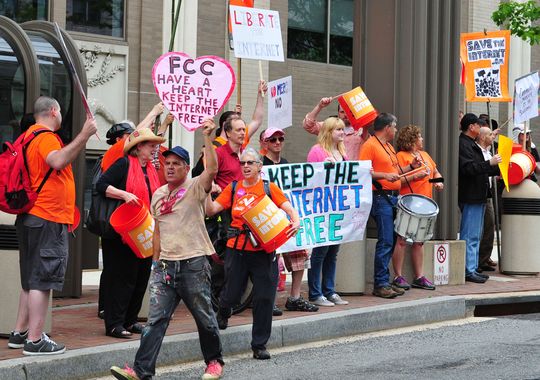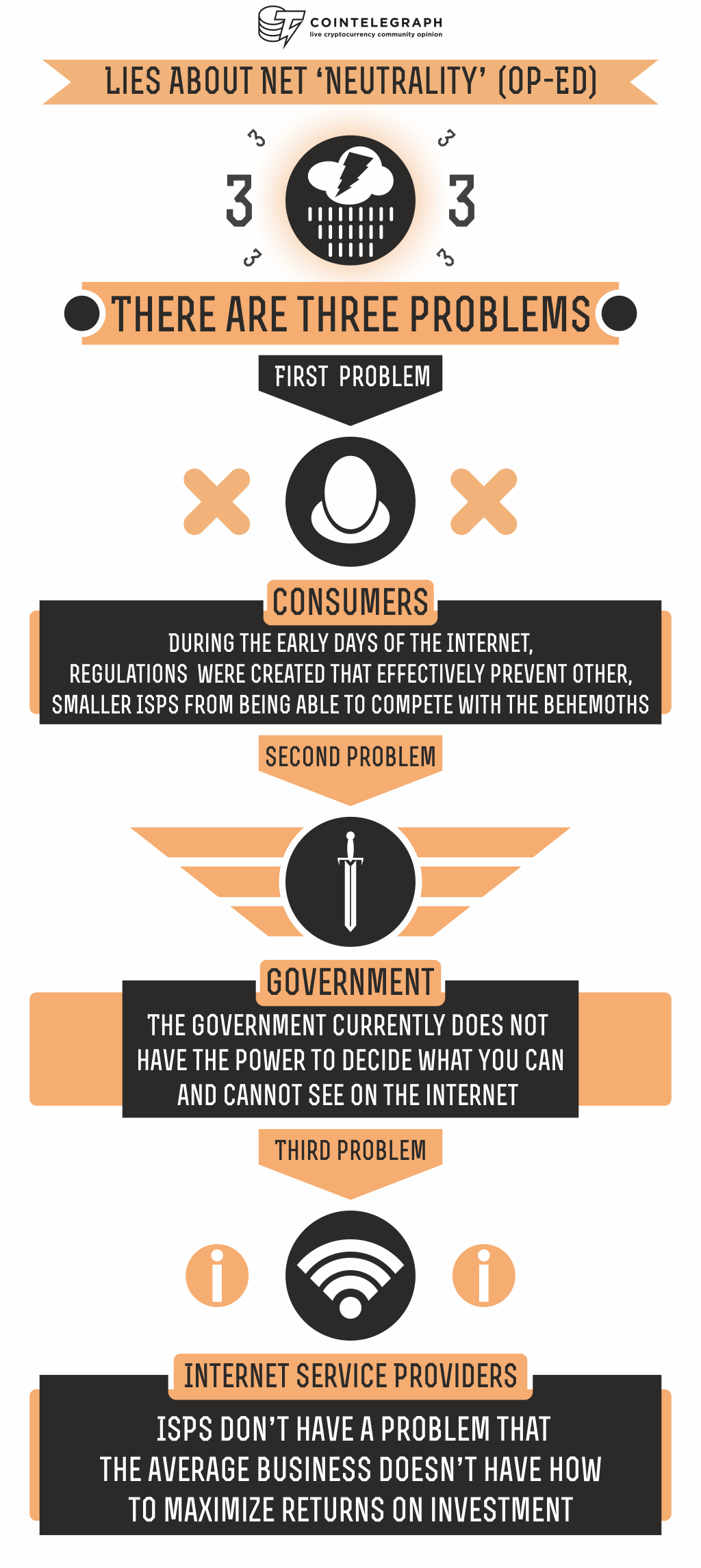There are three problems that surround this debate, and each problem comes from a different group:
1 – First is a problem for us, the consumers. Near-monopolies like Comcast, Verizon and AT&T did not become near monopolies by accident. During the early days of the Internet, regulations (i.e. barriers to entry) were created that effectively prevent other, smaller ISPs from being able to compete with the behemoths. This allows these mega ISPs to provide the shitty customer service and high prices we all know so well.
2 – Second is a problem for the government, who back in the days before the Internet was able to control the content on broadcast media almost exclusively. It could do this because the only forms of broadcast then—television and radio—had been “regulated” by the FCC. The government currently does not have the power to decide what you can and cannot see on the internet the way it does for television and radio—and it really, really wants to change that.
3 – Third is a problem for Internet Service Providers. Contrary to what you’ve been told, ISPs aren’t freaking out about how much bandwidth you use when you stream Netflix. That’s a lie told to scare you into acting irrationally. People were streaming scads and scads of high-def porn long before Netflix came along. In fact, ISPs don’t have a problem that the average business doesn’t have—how to maximize returns on investment. And for the more unscrupulous among them, getting in bed with government regulators in exchange for keeping their monopolies sounds like a pretty good business plan.

Now you can probably tell that only one of the three groups mentioned has a legitimate problem. Governments attempting to censor content is not legitimate and transnational corporations seeking more eradication of competition is also not legitimate. What is a legitimate problem is that consumers are forcibly prevented from having more choice in ISPs. It’s absurd that only a few major ones exist, usually only one per area.
Can you imagine if JC Penney were the only clothing store allowed to operate in all of Kansas? If TGIFriday were the only restaurant allowed to operate in Ohio? These ideas sound absurd to us. Why? Because we consumers still have relatively free markets in clothing and food, so we’re used to having lots of choices and generally having access to exactly what we want (and if we don’t, we just go online to get it).
But because there’s never been a free market in Internet service, we don’t even know that we should expect it. That hundreds of ISPs should be the norm the way hundreds of clothing stores and hundreds of restaurants is the norm just doesn’t register to us.
Hundreds of ISPs would solve the problem of different people wanting different things online (not to mention drive down prices dramatically). There could be a Porn ISP who streamed the shit out of high-def porn, as much as you could watch, all for one low price. There could be a research ISP, a social media ISP and even a Netflix ISP. And there would probably be hybrid services where you could subscribe to a little of everything—just like grocery stores, where Chinese food, cake, pizza, toilet paper, milk, eggs and beer are all under one roof.
We’re not all petitioning the government for “grocery store neutrality” or “clothing provider neutrality.” (And anyone who wants to know what the government’s idea of “neutral” content will be should read a few Snowden leaks.) Hint, hint: what better way to kill Bitcoin than let those who are most threatened by it decide what kind of traffic is allowed on the Internet?
A problem created by regulations—our current Internet situation—can be solved in one of three ways: a stripping away of the regulations (fat chance!), the ignoring of the regulations (a more valid, though still difficult option) or outright innovation making the old model fade into obsolescence (similar to what Bitcoin can potentially do to fiat currency).
I myself prefer the third model. As long as there are monopolistic, single-points-of-failure like Comcast and Verizon standing between us and a world wide Internet, there are going to be problems of bad service, high cost and low reliability--or, in other words, the problems of centralization.
The Internet took off, in part, because television and radio were so stifled by the FCC. Letting the FCC do to the Internet what it did to television and radio would be truly horrendous. Only when the Internet is decentralized—through mesh networks, satellites or something even more brilliant—will we see these problems melt away.

Did you enjoy this article? You may also be interested in reading these ones:
